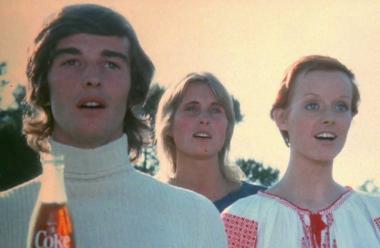This morning‘s news announced the death of an otherwise unknown man in the US, William Backer. But once his contribution to the advertising world is known, he takes on the mantle of fame; as he was the composer of ‘I want to teach the world to sing’, the anthem that swept the world in the Coke commercial of the 1970s. Well before the age of continuous sharing, this commercial may be the most famous commercial of all time. Worldwide. Certainly, the writers of Mad Men thought so, ending the series with it so brilliantly and appropriately. What progress has been made in creativity in the digital age, one is bound to ask in the face of the latest phenomenon, ad blockers.
Finally, we are hearing the voice of sanity. Digital’s wings look like they may be being clipped a bit as consumers say enough already. It’s been a long and bumpy road, this business of intrusiveness. Television ads were considered ‘intrusive’ until people began to understand the nature of the bargain: ads support content. As this understanding coincided with the golden age of creativity, advertisers, agencies and viewers were relatively happy. Not everyone thought ‘the ads were better than the programmes’, but that anyone said it at all was remarkable and a tribute to the creativity of agencies of the period.
In June issue of Market Leader Peter Field analyses the current situation, arguing that we should welcome ad blocking, as it forces advertisers and their agencies to think more deeply and seriously about how commercial communication actually works. Peter, along with Les Binet, produced the definitive work on the subject in their analysis of IPA Effectiveness Awards making the important distinction between strategic brand building communication (inevitably emotionally based) and the tactical contribution of digital.
Michael Bayler puts his finger on the flawed logic of ‘relevance’ in his response to Peter’s analysis. Big data has produced a paradigm which has equated hyper-targeting with effectiveness. He argues that the kind of targeting that big data allows may be important for point of sale, merchandising, all the kinds of direct mail activities that accompany a campaign, but it has serious limits and has little or nothing to do with longer term effectiveness - which is about eliciting emotional responses that genuinely connect and reward the viewer. The notion that relevant targeting is an end in itself has hi-jacked the whole process leading to what is effectively harassment and its inevitable consequence: blocking this intrusive, irritating, stalking activity out.
Newsletter
Enjoy this? Get more.
Our monthly newsletter, The Edit, curates the very best of our latest content including articles, podcasts, video.
Become a member
Not a member yet?
Now it's time for you and your team to get involved. Get access to world-class events, exclusive publications, professional development, partner discounts and the chance to grow your network.

